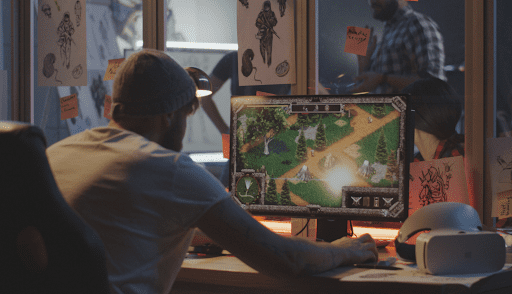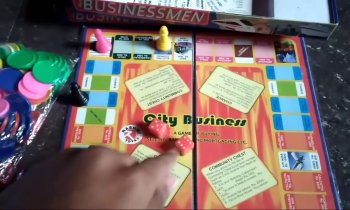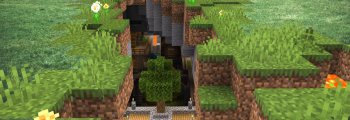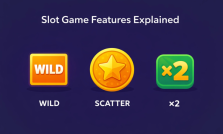Table of Contents
Game development is an exhilarating journey that allows you to unleash your creativity, entertain millions of players, and even make a living out of your passion. As an aspiring game developer, having a solid foundation and mastering critical skills is essential to bring your ideas to life. That's where Unity, one of the most popular game development platforms, comes in.
Unity provides a user-friendly interface, a vast library of assets, and powerful tools to help developers create games across different genres and platforms. With Unity, you can bring your wildest game ideas to life, from immersive open-world adventures to addictive puzzle games and everything in between.
In this article, we'll explore some tips and tricks to help you master game development with Unity and unlock your full potential as a game developer. So let's dive in and discover all the secrets to creating amazing games with Unity!

1. Start with Unity Tutorials and Documentation
Unity offers a wealth of tutorials and documentation that cover everything from the basics to advanced techniques. Whether you're a complete beginner or have some experience with game development, diving into Unity's official tutorials and documentation will help you understand the platform's capabilities, workflows, and best practices.
Familiarize yourself with the interface, learn about Unity's scripting language, C#, and explore the different features and tools available. The tutorials will guide you step by step, teaching you how to create your first game and gradually introducing more complex concepts.
By starting with Unity tutorials and documentation, you'll build a solid foundation of knowledge and gain the confidence to tackle more challenging game development projects.
2. Join the Unity Community
The Unity community is filled with passionate developers who are always willing to help and share their knowledge. Joining forums, groups, and communities dedicated to Unity game development can provide valuable insights, solutions to common problems, and feedback on your projects.
Collaborating with fellow developers will enhance your skills and open up networking opportunities and potential collaborations. You can learn from other developers' experiences, share your own discoveries, and get inspired by the incredible work being done in the Unity community.
Additionally, Unity hosts regular events, meetups, and conferences where you can connect with other developers, attend workshops, and learn from industry experts. These events are a great way to stay updated on the latest trends and developments in game development and build valuable connections.
3. Build Small Projects to Gain Experience
Just like any skill, game development requires practice to master. Start by creating small projects like mini-games or simple prototypes to gain experience and understand the development pipeline. If you're looking for opportunities to work on projects and gain real-world experience, platforms like Onsiter.com can be a valuable resource.
When starting a new project, begin with a clear goal in mind. Define the main mechanics, the setting, and the overall experience you want to deliver. Breaking down your project into manageable tasks will help you stay focused and motivated while working on each step.
As you progress, challenge yourself with more complex projects to further refine your skills and expand your portfolio. Experiment with different genres, art styles, and gameplay mechanics to broaden your understanding of game development and discover new possibilities.
Platforms like Onsiter.com offer a way to connect with projects that align with your skills and interests. These platforms can help you find freelance or contract opportunities that provide hands-on experience and a chance to contribute to real projects in the industry. This practical experience will enhance your skills and boost your credibility as a game developer.
4. Make use of the Unity Asset Store
Unity Asset Store is a treasure trove of ready-to-use assets, scripts, and plugins created by the Unity community and professional developers. Instead of reinventing the wheel, leverage the Asset Store to enhance your game's visuals, audio, and functionality.
Whether you need 3D models, particle effects, or character controllers, the Unity Asset Store has a wide range of assets to suit your needs. From realistic environments to animated characters and sound effects, you'll find everything you need to bring your game to life.
Always ensure that the assets you choose are properly licensed and optimized for your project. This will save you time and effort while allowing you to focus on the unique aspects of your game that require your personal touch.
5. Understand Game Design Principles
Game development is not just about writing code; it's also about creating engaging experiences for players. Familiarize yourself with game design principles such as gameplay mechanics, level design, user experience, and storytelling.
Understanding the fundamentals of game design will help you craft more immersive and enjoyable games. By studying the work of successful game designers, analyzing popular games, and experimenting with different design techniques, you'll develop a keen eye for what makes a game engaging and memorable.
Remember, the player's experience should always be at the forefront of your design decisions. Embrace creativity and experimentation while keeping in mind the core principles of game design.
6. Learn C#
Unity uses C# as its primary scripting language. While you can create games in Unity without extensive programming knowledge, learning C# will give you more control and flexibility over your projects.
Many online resources, tutorials, and courses are available to help you learn C#. Start with the basics, such as variables, loops, and conditionals, and gradually progress to more advanced topics like object-oriented programming and data structures.
Practice writing scripts for different game mechanics, such as character movement, enemy behavior, and user interfaces. Experiment with different coding patterns and architectures to find the best approach for your game projects.
7. Optimize Performance
Optimizing your game's performance is crucial, especially if you're targeting multiple platforms or mobile devices. Unity provides various tools and techniques to optimize performance, such as asset optimization, memory management, and script optimization.
Keep an eye on your game's frame rate to ensure smooth gameplay. Avoid unnecessary computations or resource-intensive scripts that can bog down the performance. Optimize your assets, textures, and animations to strike a good balance between visual quality and performance.
Remember to test your game on different devices and platforms to ensure compatibility and smooth performance across the board. Performance optimization is ongoing, so keep experimenting, profiling, and tweaking your game until you achieve the best performance possible.
8. Test, Iterate, and Seek Feedback
Testing and iteration are essential parts of the game development process. Continuously playtest your game, gather feedback from players, and iterate on your design based on the feedback received.
Invite friends, colleagues, or gaming community members to try out your game and provide their opinions. Analyze the feedback objectively, and identify areas that need improvement. Remember that feedback is crucial for growth as a game developer. Embrace constructive criticism and use it to refine your gameplay, fix bugs, and create a better overall experience for players.
Iterating on your game design can involve tweaking level layouts, adjusting difficulty curves, or even overhauling entire mechanics. As you refine your game, you'll notice your skills improving and your game becoming more polished and enjoyable.
In conclusion, mastering game development with Unity requires a combination of technical skills, creative thinking, and perseverance. By leveraging Unity's resources, joining the Unity community, practicing regularly, and applying game design principles, you'll be well on your way to becoming a successful game developer. So, dive in, explore, and let your imagination run wild as you embark on this exciting journey.




















Comments